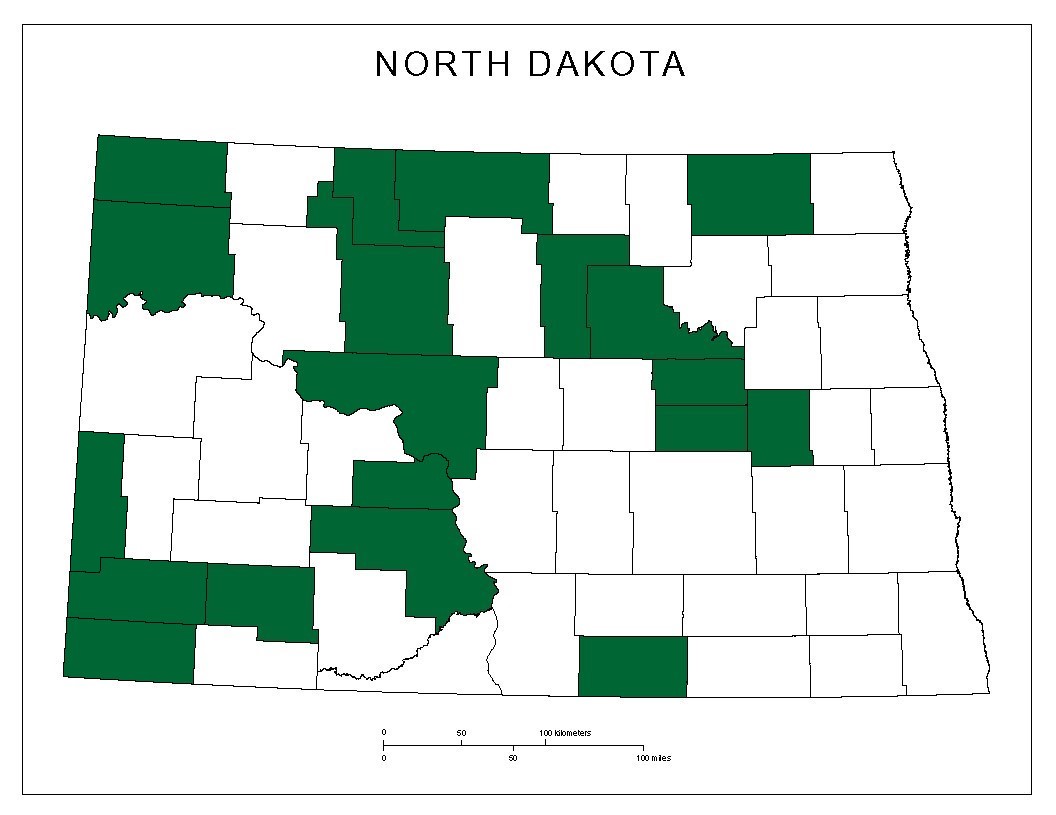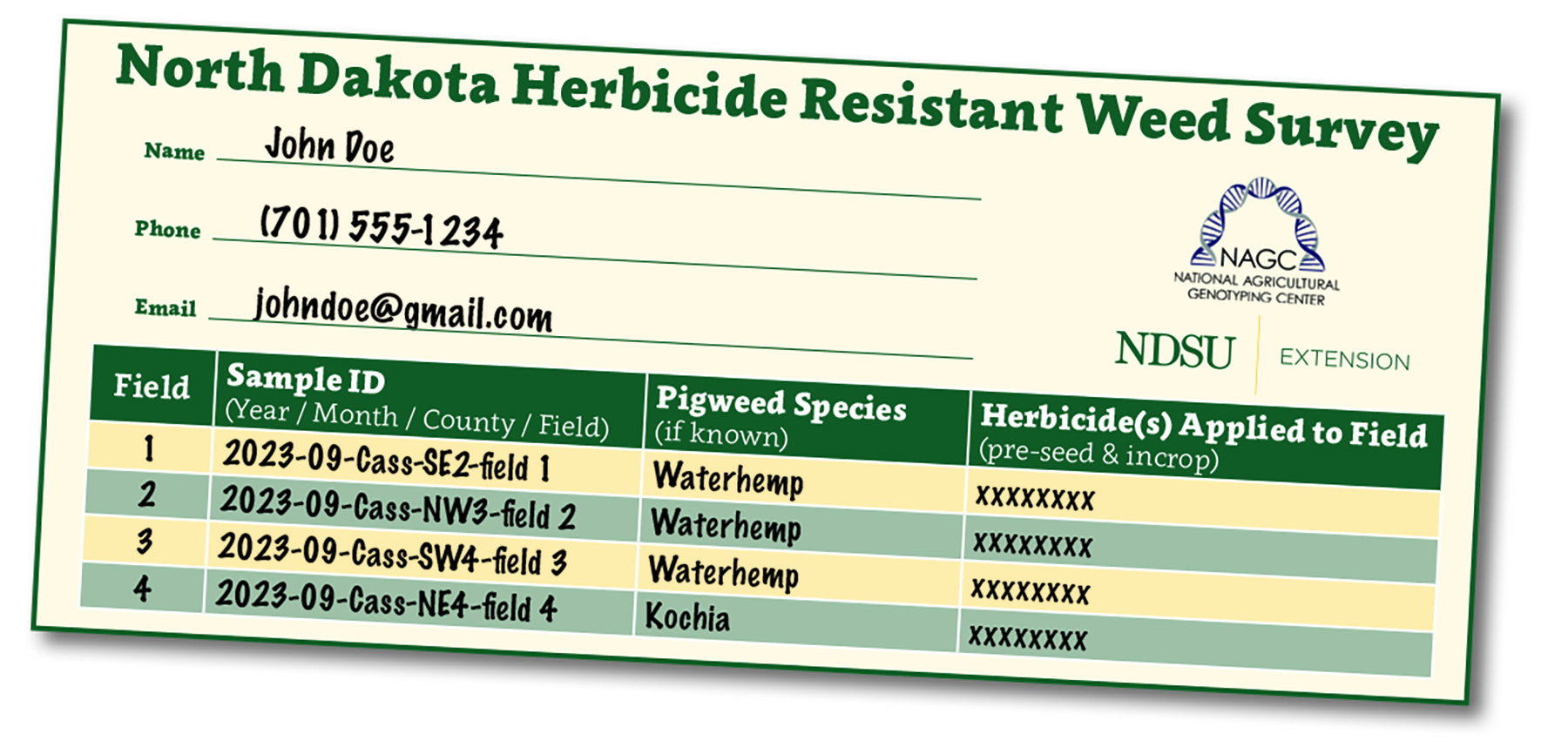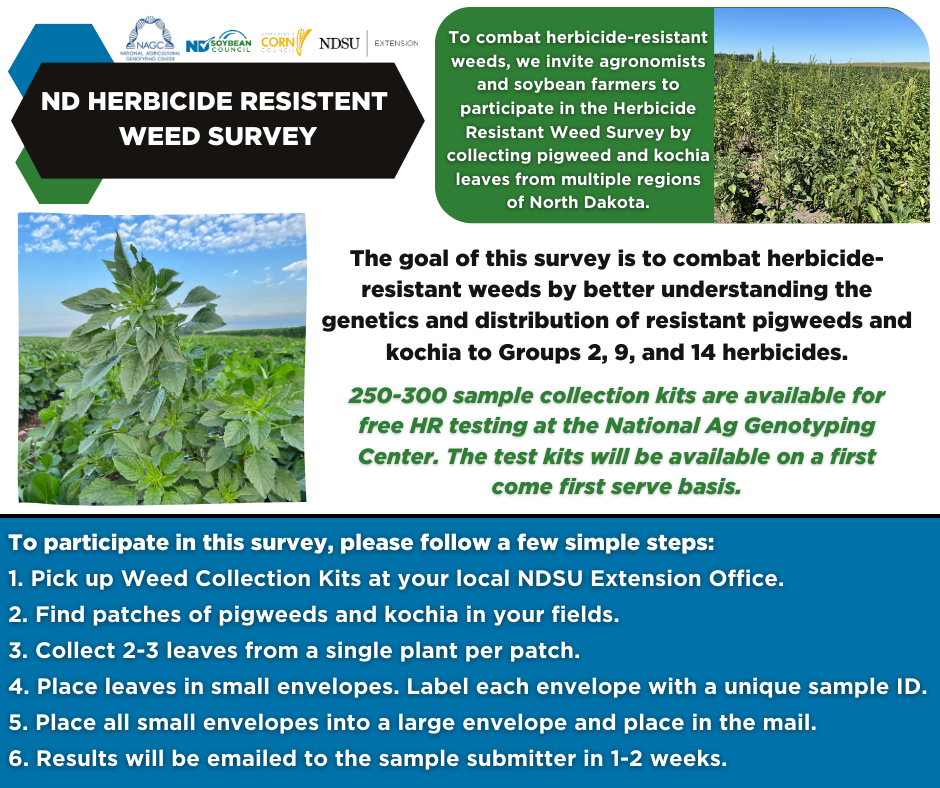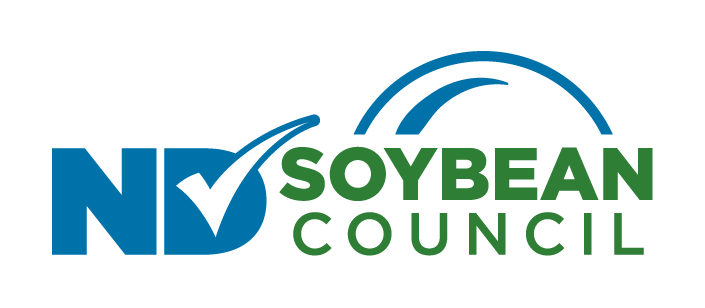
North Dakota Herbicide Resistant Weed Survey
Free Herbicide Resistant Weed Surveys Available for North Dakota Farmers
Herbicide-resistant weeds such as Kochia, waterhemp, and palmer amaranth are problematic for farmers in North Dakota. To combat herbicide-resistant weeds, the North Dakota Soybean Council (NDSC) invites farmers and agronomists to participate in the North Dakota Herbicide Resistant Weed Survey by collecting and shipping pigweed and kochia leaves from multiple regions of North Dakota to the National Agricultural Genotyping Center (NAGC).
The survey’s goal is to combat herbicide-resistant weeds by better understanding the genetics and distribution of resistant pigweeds and kochia to Group 2, 9, and 14 herbicides.
Funding is available for the first 1000 North Dakota pigweed or kochia samples for no charge up to 4 samples per farming operation. Additional tests, as well as samples originating from outside of North Dakota, will have charges based on the NAGC rate.
Each county extension office will have sample collection kits on hand with instructions on how to collect and send samples. The Sample Collection Kit includes one prepaid U.S. Postal Service (USPS) envelope; one submission form; and four, small collection envelopes with blank labels.
Once sample collection kits run out at county offices, samples can be submitted following the self-mailing instructions and submission form: https://genotypingcenter.com/wp-content/uploads/2024/05/Self-mailing-ND-Residents-Collection-Instructions-Submission-Form-v1.0.pdf
Herbicide resistance testing will be conducted at the National Agricultural Genotyping Center. The standard turnaround time for results will be 7 days from arrival at NAGC.
This program is sponsored by the NDSC, the North Dakota Corn Utilization Council, the North Dakota Specialty Crop Block Grant, and Minor Crop Utilization Grants.
To get the most impactful information from these DNA tests, leaves should be collected from plants that survive the herbicide in question. The application will remove susceptible plants and increase the confidence of the resistance determination.
Individual sample results will remain confidential. Test results will be sent directly from the NAGC to the e-mail provided on the submission form. The NAGC will aggregate results to provide data at the county level, but no individual information will be released. The map below (Figure 1) highlights counties where populations of Group 14 resistant kochia have been confirmed.

This sampling program using DNA testing began in the Fall of 2023. To date, the NAGC has received 51 kochia samples from 21 counties in North Dakota. Results found that 33% of samples contained a mutation that confers resistance to Group 14 herbicides, 82% of samples contained a mutation that confers resistance to glyphosate, and 51% of samples contained mutations that confer resistance to Group 2 herbicides. It is important to note that DNA testing can only detect known target-site mutations that confer resistance. There could be unknown mutations, or other mechanisms of resistance that these tests cannot detect.
Sample Collection Procedures:
- Locate pigweeds or kochia in the field. Proper ID is important before collecting leaf samples.
- Collect two leaves near the top of the plant (leaves must be larger than a standard hole-punch to allow for adequate DNA extraction). Place two (2) leaves from a single plant into one (1) zipper bag or small envelope. DO NOT mix leaves from multiple plants.
- With a marker, label the outside of the collection bag with a unique Sample ID. The Sample ID can be in the following format: Year-Month-County-Personal Field ID (Example: 24-05-Cass-SE4). Make sure to also write the Sample ID on the submission form.
- Sample additional weeds in fields of your choice by following Steps 1-3. Send a max of four (4) total plants for testing. Keep samples dry and at room temperature before shipping.
- Mail the submission form and individually-packaged samples in a large business envelope to:
National Ag Genotyping Center
1616 Albrecht Blvd N
Fargo, ND 58102
Please direct any sampling questions to the:
NAGC
Email: research@genotypingcenter.com
Phone: 701-239-1451
For an example of results, see Charlie Lim’s article published on NDSU’s Crop & Pest Report CPR 5-9-2024_0.pdf (ndsu.edu) in the Around the State section, page 16-18.
For more helpful information about weeds from NDSU, CLICK HERE


